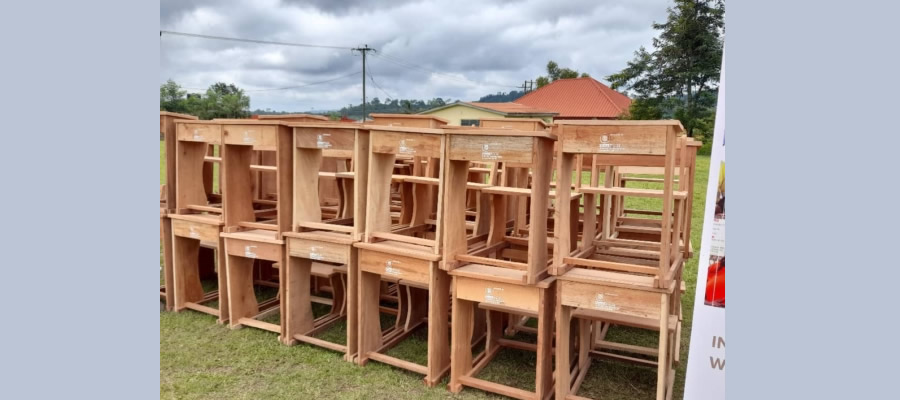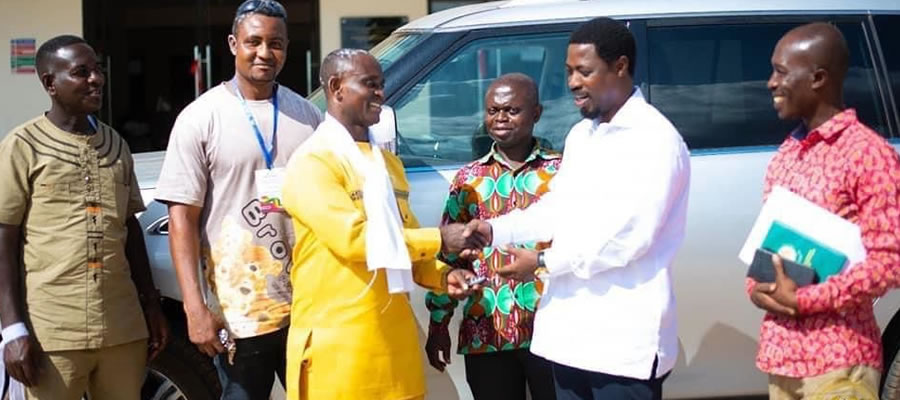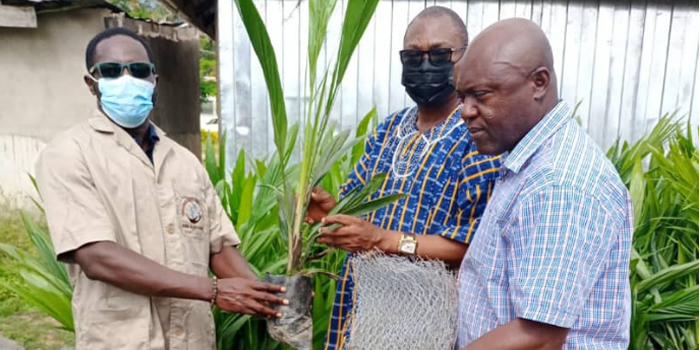

The Municipal Assembly sees good governance as one of the cornerstones of development in the Municipality. The various administrative structures of enhancing governance and ensuring citizen participation in the development process in the BAB Municipality includes the Municipal Assembly, Decentralised Departments, Area Councils and Unit Committees and Traditional Authority, Transparency and Accountability, etc.
a. District Assembly
The BABMA by the provision of Local Government Act, Act 462, 1993 which has been amended to Local Governance Act, 2016, Act 936 is the Planning Authority and is responsible for planning, implementation, monitoring and evaluation of all development policies, programmes and projects as well as ensuring accountability and transparency in the district. These programmes/projects include the provision of basic services (education, health, water sanitation, housing etc), support to the vulnerable and excluded and maintenance of peace and security in a democratic environment.
According to the second schedule, section 78 of the Act 936, the Municipal Assembly is composed of the Central Administration Department and Decentralized Departments. The Central Administration Department is composed of the Municipal Chief Executive, the Municipal Co-ordinating Director, the Planning Officer, the Budget Officer, Executive Officer, etc. There is also the General Assembly, which includes the Presiding Member, the Member of Parliament, the Municipal Chief Executive, and the Assembly members. The Municipal Assembly is also constituted into subcommittees and the Executive Committee.
There are fifty-two Assembly members mad e up of thirty-six elected members and fifteen government appointees excluding Member of Parliament and Municipal Chief Executive.
Act 936, 2016 provides legal backing for the establishment of 11 departments under the District Assemblies to perform the administrative and developmental functions to the respective districts as shown in Table 1.15. Since the establishment of the Municipal Assembly in 1988, all the departments have been established in the Municipality except Trade and Industry and other sub-units of some departments. However, the Municipality is fortunate to have Business Advisory Centre (BAC) established to perform more or less the role of the Trade and Industry. The Municipality has also benefited from the establishment of other public sector organisations.
Some existing Decentralised Departments face a number of problems including lack of proper office and residential accommodation, inadequate logistics and inadequate personnel.
c. Public Sector Organizations
The existing Public Sector Organisations operating in the district are as follows:
• Ghana Immigration Service
• Ghana Police Service
• Commission for Human Rights and Administrative Justice (CHRAJ)
• National Commission for Civic Education
• Electoral Commission
• Circuit Court
• District Magistrate Court
• Internal Revenue Service
• Birth and Death Registry
• Information Services Department
• Ghana Fire Service
• Audit Service
• ECG 60
• Lands Commission
• Meteorological Services Department
• Minerals Commission
There exists a cordial working relationship among the existing departments and organisations, which is a prerequisite for good governance. This effective partnership of the departments and organizations will go a long way to consolidate good governance in the Municipality. The absence of some departments and other public sector institutions will affect effective and efficient running of the Municipality to enhance the speedy development of the Municipality.
District Departmental Organogram
d. Sub-District Structures
The Municipality has One Town Council and Eight Administrative Area Councils namely; Bibiani Town Council and Sefwi Bekwai, Humjibre, Awaso, Subri, Wenchi, Anhwiaso, Asawinso, Lineso Area Councils through which devolution of authority is exercised from the Municipal level. To ensure effective functioning of the sub-structures, the Municipal Assembly is in the process of providing all the substructures with office accommodation and equipment and logistics.
Under the Area Councils are 36 Electoral Areas and 36 Unit Committees at the various community levels for effective decision making. Internal feedbacks from these levels are sent to the Municipal level for harmonisation and decision making. The Town/ Area Councils and Unit Committees in the Municipality are bedevilled with inadequate funds and logistics, lack of office accommodation, poor capacity building, lack of remuneration and lack of commitment. The map below or Figure1.10 illustrates town/area councils in the Municipality.
Figure1. 9: Area Council Map
Source: BABMA, 2017
e. Traditional Authority
The traditional rulers in the District play a pivotal role in the governance of the people. The Municipal Assembly (DA) considers them as effective development partners and for that matter, they are always drawn to partake in any development oriented activity. There are dynamic, proactive, visionary and very co-operative traditional rulers in the Municipality who are always ready to support any development agenda. This provides strong partnership among the Traditional Authorities, NGOs and DA including the Decentralised Departments in the development process of the Municipality.
f. Accountability & Transparency
The Municipal Assembly beliefs the important roles of accountability and transparency and ensures that they are featured in all spheres of its operations. This is done through prudent financial management and reporting or dissemination of information, adherence to the Public Procurement Law 2003, ACT 663, community participation in decision-making, public hearings, checks and balances through relevant committees and General Assembly meetings in order to be accountable to the people in the Municipality. It is gratifying to note that the above-mentioned tools of accountability and transparency are thriving in spite of the numerous challenges faced by the Assembly.
g. Participation of Citizenry
The level of participation of the citizenry in the development process of the Municipality is quite commendable. Participation in decision-making can be very much felt at the Area Council level where development issues are discussed, identified, and planned.
At the district level, the citizens participate actively in the running of the district through general assembly meetings, assembly sub-committee meetings and public hearings both at the district level and area council level in the planning, budgeting, monitoring and evaluation, and financial management processes. The good citizens’ participation in the development process is a pre-requisite condition for efficient mobilisation of the needed resources for any meaningful development.
Security
Peace and stability emanate from a well-co-ordinated and effective security apparatus in every society. The Municipality is fortunate to have access to the Police Service, Immigration Service and BNI whose mandate are to enforce peace and order in a democratic dispensation. The Municipality is also fortunate to have a District Circuit and Magistrate Court at Bibiani which help to administer justice to the people to ensure peace, order and security. As indicated earlier, there is peaceful coexistence among the three paramountcies and there is no serious chieftaincy dispute as well as serious land litigation in the Municipality which sometimes necessitate land guards in some parts of the country. Armed robbery is not too rampant but the district occasionally records some cases. This favourable and encouraging security environment in the district promotes good governance, attract investment and development.
Local Economic Development (LED)
Local economic development which includes various local initiatives to tap the local economic resources for economic growth and improve the lives of the pro-poor people is not fully developed in the Municipality due to inadequate socio-economic infrastructure base and inadequate human capacity.
Some are designed specifically to help poor people directly while others are created to support economic growth in the Municipality. Due to their significant impacts on the growth of the local economy, the Assembly within the next plan period will concentrate in the following areas in promoting local economic development. These include;
a. supporting micro enterprises (run by one or two persons)
b. supporting small business development c. providing skill training
d. encouraging domestic or foreign investment by providing infrastructure-like good roads, electricity, or further reducing crime
e. providing municipal services such as education, health, regulations etc. which support LED
Date Created : 5/4/2023 12:00:00 AM













 facebook
facebook
 X
X
 Youtube
Youtube
 instagram
instagram
 +233 593 831 280
+233 593 831 280 0800 430 430
0800 430 430 GPS: GE-231-4383
GPS: GE-231-4383 info@ghanadistricts.com
info@ghanadistricts.com Box GP1044, Accra, Ghana
Box GP1044, Accra, Ghana